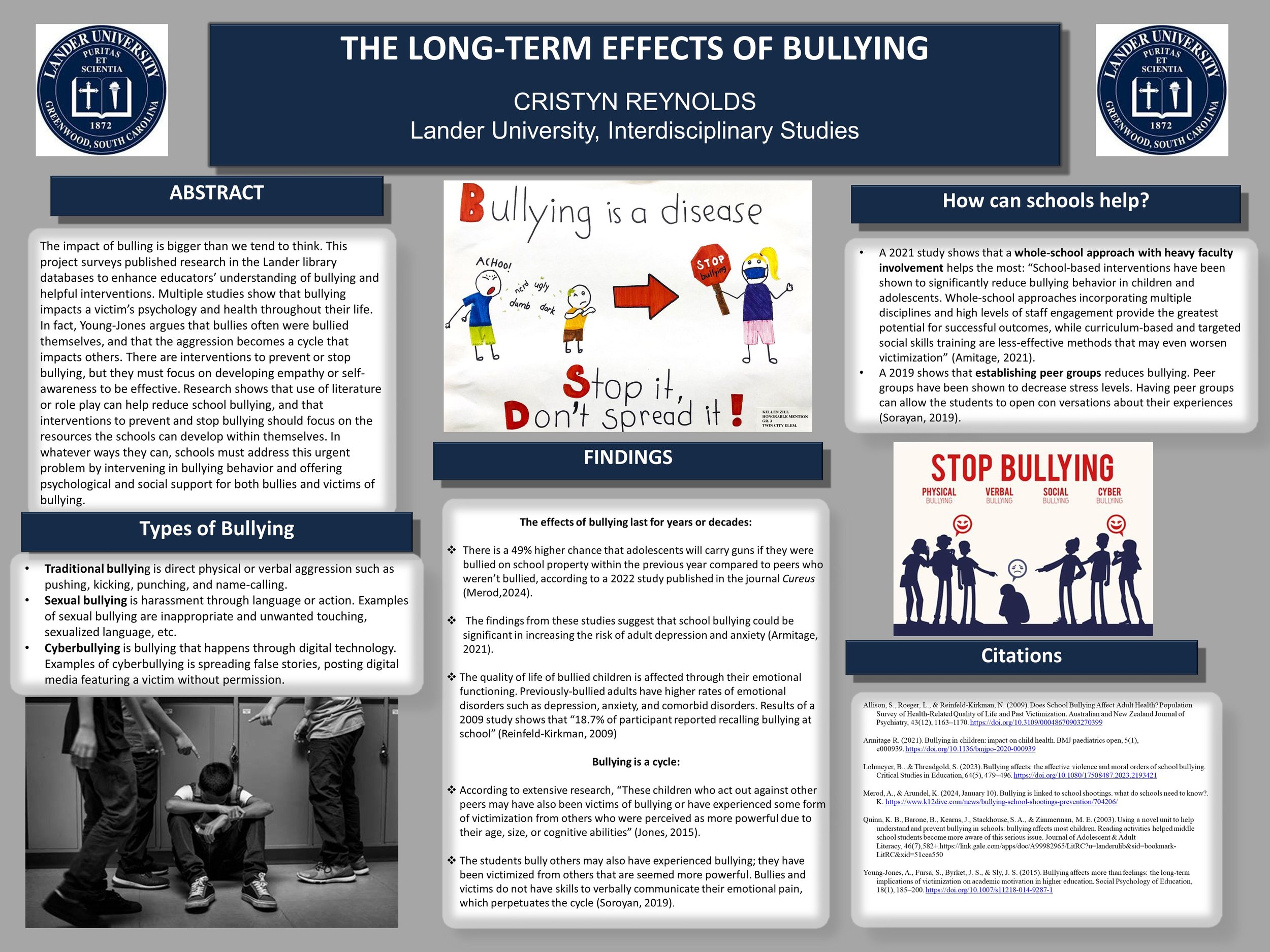The Long-term Effects of Bullying
Cristyn Reynolds
The impact of bulling is bigger than we tend to think. This project surveys published research in the Lander library databases to enhance educators’ understanding of bullying and helpful interventions. Multiple studies show that bullying impacts a victim’s psychology and health throughout their life. In fact, Young-Jones argues that bullies often were bullied themselves, and that the aggression becomes a cycle that impacts others. There are interventions to prevent or stop bullying, but they must focus on developing empathy or self-awareness to be effective. Research shows that use of literature or role play can help reduce school bullying, and that interventions to prevent and stop bullying should focus on the resources the schools can develop within themselves. In whatever ways they can, schools must address this urgent problem by intervening in bullying behavior and offering psychological and social support for both bullies and victims of bullying.
Cristyn Reynolds is a graduating senior interdisciplinary studies major. After graduation, she will begin graduate school to earn her master’s degree for school counseling.
